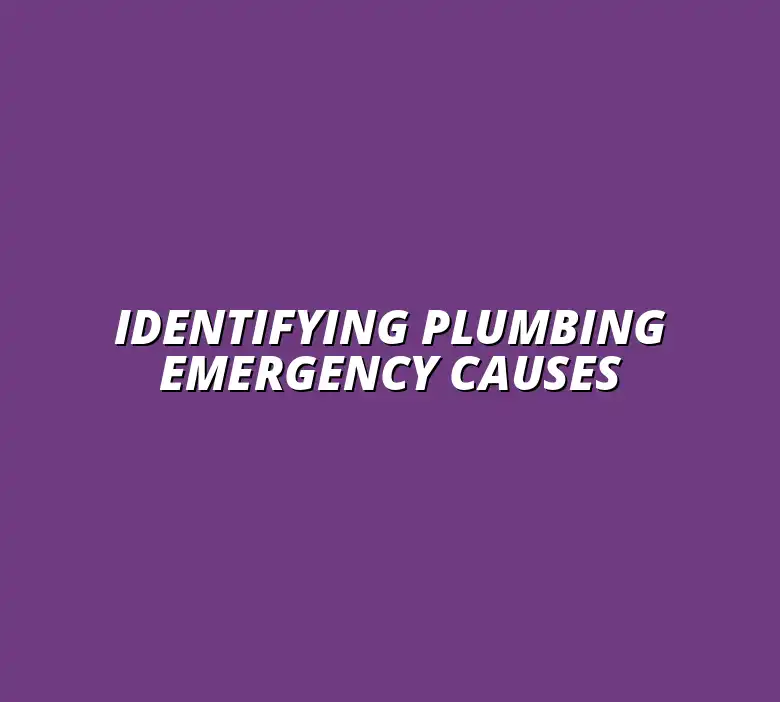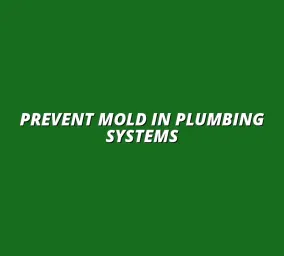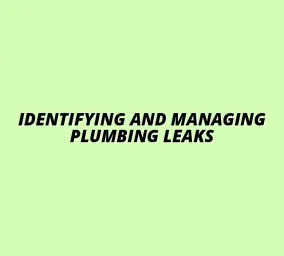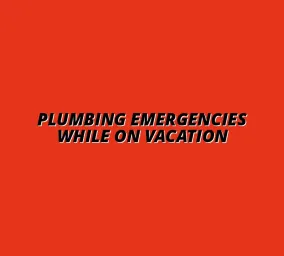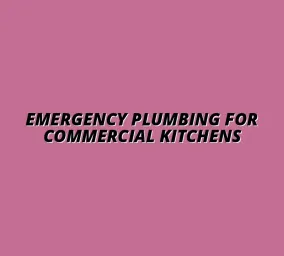Identifying Plumbing Emergency Causes
Understanding Plumbing Emergencies and Their Impact on Your Home
When it comes to home maintenance, understanding plumbing emergencies is crucial. These unexpected situations can lead to significant damage to your home, and knowing how to respond can minimize their impact. Whether it’s a burst pipe or a clogged drain, having a basic knowledge of plumbing emergencies helps homeowners act quickly and effectively.
Not only do plumbing emergencies disrupt your daily life, but they can also create costly repairs if not addressed promptly. It's essential to recognize these issues early to avoid more extensive damage to your property. By being informed, you can take the necessary steps to protect your home and its value. For example, learning how to prevent plumbing emergencies with regular maintenance is a great first step.
Defining Plumbing Emergencies: What You Need to Know
Plumbing emergencies include any situation that requires immediate attention to prevent water damage or disruption of services. Understanding what qualifies as an emergency can save you time and money. Here are some key scenarios that are considered plumbing emergencies:
- Severe leaks that cause water pooling
- Overflowing toilets
- Broken pipes or fixtures
- Blocked drains that lead to sewage backup
Each of these situations poses risks not only to your property but also to your health. Addressing them quickly can prevent more extensive damage and ensure your home remains a safe environment. Knowing the urgent plumbing emergency warning signs is critical.
Common Types of Plumbing Emergencies in Residential Properties
In residential properties, several plumbing emergencies can arise unexpectedly. Understanding these common types can help you identify when to act. Some frequent plumbing emergencies include:
- Leaking faucets or pipes
- Clogged toilets and drains
- Running toilets that waste water
- Water heater failures
Recognizing these issues is the first step in mitigating damage. Homeowners should take note of any unusual changes and be prepared to respond quickly to prevent escalation. For instance, a water heater issue could quickly become a major problem.
How Plumbing Issues Can Affect Your Property Value
Ignoring plumbing emergencies can have a lasting effect on your home's value. Potential buyers often conduct thorough inspections, and plumbing issues can lead to significant deductions in offers or even deter buyers completely. For instance, persistent leaks can cause mold, which is a major red flag for any homeowner.
Moreover, addressing plumbing issues promptly not only protects your home’s value but also increases its appeal. A well-maintained plumbing system is an attractive feature for prospective buyers, showcasing your commitment to home care. Regular maintenance, such as preventing bathroom drain clogging, is essential; see our guide on how to prevent bathroom drain clogging year-round.
Identifying the Signs of a Plumbing Emergency
Being able to identify the signs of a plumbing emergency is essential for any homeowner. Early detection can save you from costly repairs and ensure the comfort of your home. Keeping an eye out for warning signs can help you act before a small issue turns into a significant problem.
There are often subtle indications that something is amiss in your plumbing system. Understanding these signs will help you maintain your home effectively and tackle issues before they escalate. If you suspect a problem, it's important to know how to maintain your plumbing system easily.
Recognizing Early Warning Signs in Your Home
Being aware of early warning signs is the key to preventing plumbing emergencies. Here are a few signs to watch for:
- Unusual odors coming from drains
- Gurgling sounds in toilets or sinks
- Sudden changes in water temperature
If you notice any of these signs, it may be time to investigate further. Ignoring them could lead to more severe plumbing issues down the line.
Unusual Sounds: Gurgling, Bubbling, and Other Indicators
Unusual sounds from your plumbing system can be a clear sign of a problem. Gurgling or bubbling noises often indicate a blockage in the pipes. These sounds can also suggest that air is trapped in the system, which can lead to pressure issues and potential leaks.
Listening to your plumbing can provide valuable information about its health. If you hear persistent unusual noises, it’s best to consult with a plumber to avoid more significant problems. In Birmingham, you might consider contacting a plumber in Brandwood End, Birmingham for assistance.
Changes in Water Pressure: What to Monitor
Monitoring water pressure is another essential part of home maintenance. If you notice significant fluctuations in pressure, it may indicate a plumbing issue. High water pressure can lead to pipe bursts, while low pressure can cause inadequate water flow.
Paying attention to these changes can help you maintain your plumbing system effectively. If you believe your water pressure is out of the ordinary, don’t hesitate to reach out to a professional for evaluation. Freezing pipes are a common winter issue; here are some frozen pipe plumbing tips.
Preventative Measures to Avoid Future Plumbing Emergencies
Preventing plumbing emergencies is all about staying proactive and keeping a close eye on your home's plumbing system. By following some simple *routine maintenance tips*, you can significantly reduce the risk of unexpected issues. These measures not only help you avoid costly repairs but also ensure that your plumbing system operates smoothly for years to come.
Implementing a regular maintenance schedule is key. This means checking your pipes, fixtures, and appliances periodically. Keeping an eye on these components will help you spot potential problems before they escalate into emergencies!
Routine Maintenance Tips for Homeowners
There are several effective ways to maintain your plumbing system. Regular maintenance is not just about fixing leaks; it’s about *being proactive*. Here are important steps you can take:
- Inspect your plumbing fixtures for leaks at least once a month.
- Flush your water heater yearly to remove sediment buildup.
- Clear your drains to prevent clogs from forming.
- Check for signs of mold or dampness in your home.
By following these tips, you can help ensure that your plumbing remains in good working condition. Remember, a little effort goes a long way in preventing major plumbing problems!
Effective Ways to Maintain Your Plumbing System
Some additional ways to maintain your plumbing system include keeping an eye on your water bill. An unexplained increase in your bill may indicate hidden leaks. Additionally, be mindful of what goes down your drains; avoid flushing non-biodegradable items and greasy substances.
- Use drain strainers to catch hair and debris.
- Pour hot water down your drains regularly to help dissolve grease.
- Store excess food waste in compost instead of the garbage disposal.
With these simple practices, you can keep your plumbing system in top shape and reduce the risk of emergencies.
Seasonal Checks: Preparing Your Plumbing for Different Weather
Changing seasons can affect your plumbing system, so it’s essential to perform seasonal checks. For example, preparing your plumbing for winter may involve insulating pipes to prevent freezing. Likewise, checking your sump pump before heavy rains can prevent flooding in your basement!
- Winter: Insulate exposed pipes to prevent freezing.
- Spring: Inspect for leaks after melting snow.
- Summer: Check outdoor faucets and hoses for damage.
- Fall: Clean gutters and downspouts to ensure proper drainage.
These seasonal checks are vital in keeping your plumbing safe from weather-related issues.
Investing in Plumbing Upgrades and Repairs
Sometimes, preventative measures alone aren't enough. You might need to consider investing in upgrades and repairs. Knowing when to upgrade old plumbing fixtures can save you money in the long run!
Upgrading to modern fixtures not only improves the efficiency of your plumbing system but can also increase your home's value. *Efficient appliances* reduce water consumption and lower utility bills, making them a smart choice for any homeowner!
Identifying When to Upgrade Old Plumbing Fixtures
It’s important to recognize signs that indicate your plumbing fixtures may need an upgrade. Here are some indicators:
- Frequent leaks or need for repairs.
- Water discoloration or strange tastes.
- Old fixtures that are not energy-efficient.
Addressing these issues promptly can help prevent future plumbing emergencies and ensure you have a reliable system.
Benefits of Regular Plumbing Assessments and Inspections
Regular plumbing assessments can uncover potential problems before they escalate. Scheduling an inspection at least once a year can help identify weak points in your system. Professional plumbers can spot issues that may go unnoticed by the untrained eye!
- Detect hidden leaks early.
- Ensure compliance with local plumbing codes.
- Extend the lifespan of your plumbing systems.
Regular inspections lead to peace of mind, knowing that your plumbing is in good working order!
Addressing Common Questions About Plumbing Emergencies
It's not uncommon to have questions about plumbing emergencies. Understanding what to do can make a big difference when facing unexpected issues. Let’s address some frequently asked questions that can help you navigate these situations!
Being prepared can save you time and stress when plumbing emergencies arise. The more you know, the better equipped you'll be to handle potential problems!
FAQs Related to Plumbing Emergencies
If you find yourself in a plumbing emergency, it’s important to know what steps to take immediately. Here’s what you should do:
- Shut off the main water supply to prevent flooding.
- Assess the situation to determine if it’s safe to fix.
- Use towels or buckets to manage any water until help arrives.
Knowing these steps can help you act quickly and efficiently in an emergency!
What Should I Do Immediately If I Have a Plumbing Emergency?
When a plumbing emergency strikes, you must act fast. Remember to stay calm and follow these crucial steps:
- Identify the type of emergency (leak, blockage, etc.).
- Contact a professional if necessary.
- Document the situation with photos for insurance purposes.
Taking these actions can help minimize damage and assist your plumber in resolving the issue effectively.
How Do I Know If a Plumbing Issue Requires Emergency Services?
Determining whether an issue is an emergency can be tricky. Key factors to consider include:
- Is there active flooding or water damage?
- Are you without water entirely?
- Is there a sewage backup?
If any of these situations arise, call for professional help immediately to avoid further complications!
Final Thoughts on Managing Plumbing Emergencies
Managing plumbing emergencies can be overwhelming, but being informed makes all the difference. Regular maintenance and timely upgrades are essential for preventing these situations. Remember to keep an eye out for the signs we've discussed!
Taking proactive measures not only protects your home but also gives you peace of mind. Embrace the importance of regular plumbing care, and you’ll find that emergencies become much less frequent!
Summarizing Key Insights for Homeowners
In summary, understanding plumbing emergencies and taking preventative steps are vital. By keeping up with routine maintenance and addressing issues early, you can protect your home from significant damage. Remember, investing time into your plumbing can save you money and stress in the long run!
Encouragement for Proactive Plumbing Care and Maintenance
Let’s face it—nobody wants to deal with plumbing emergencies. By being proactive and staying informed, you can avoid these headaches. So go ahead, take charge of your plumbing care, and enjoy a worry-free home!

